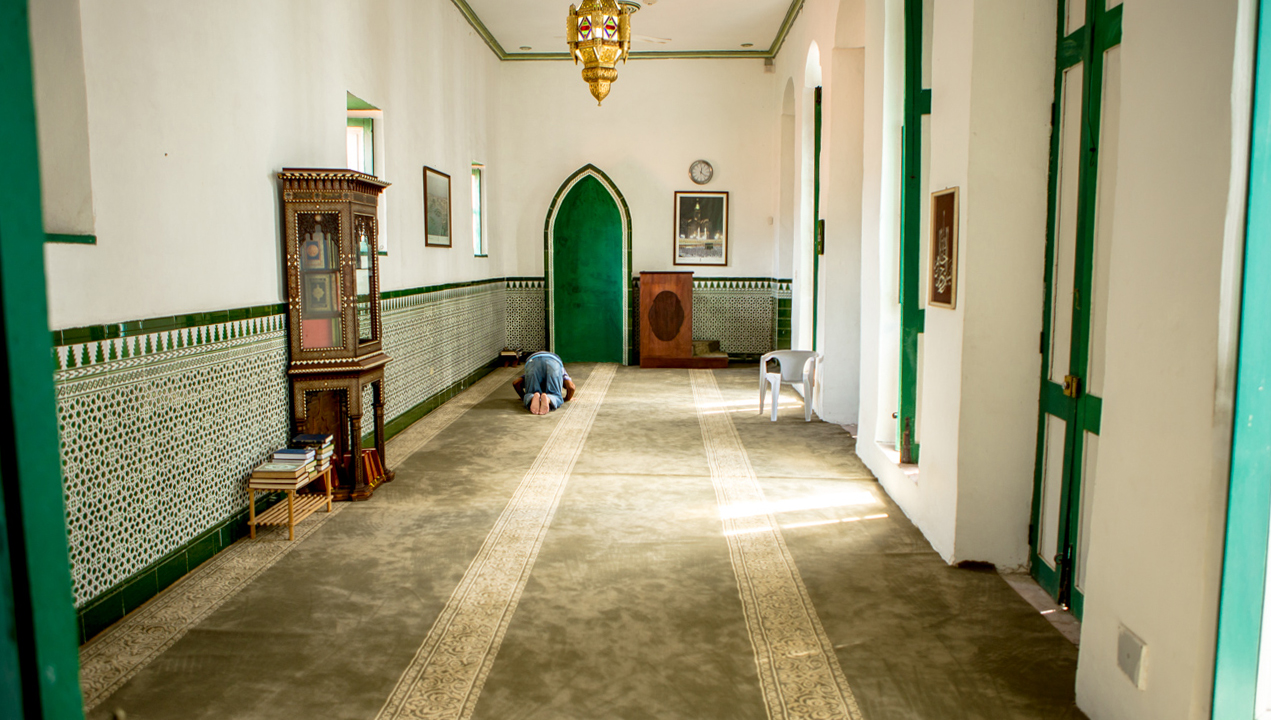There are no mosques in Cuba. The closest thing there is to a public prayer room for Muslims is an exhibit of a prayer room at a state-run Arabic museum in old Havana.
Inside the Casa de los Arabes, which translates to “House of Arabs,” there are mannequins and dioramas of old school-looking Arabs in tents. It’s a slightly cartoonish representation of Arabic culture, like a set out of Aladdin. It opened in 1983 and doesn’t appear to have been updated since. Two peacocks roam freely, a bizarre sight considering the brilliant birds are neither indigenous to Cuba nor the Arab world.

Up three flights and towards the back, you can see a typical masjid, or prayer room, like you’d find anywhere in the world where there are Muslims. But the room is for exhibit purposes only — until Friday, when the rope comes off for 3 hours for jummah, the most important prayer of the week.
The room itself is small and wouldn’t fit many worshipers, but the fact it exists in Cuba makes it special. I learned about it by chance, when I walked past a 28-year-old woman named Aisha one afternoon and said the Muslim greeting, “Salaam.” Her eyes lit up and she repeated “Salaam.” In my week in Havana, she was the only woman I saw wearing a hijab.

“Our community is very small,” she said, as I struggled to keep up with the torrent of Spanish. “Other Cubans get scared when they hear the shahada,” Aisha explained. The shahada is a declaration of faith in Islam that translates to: “There is no God but God, and Mohamed is his messenger.” It is a part of daily prayer for Muslims around the world, and holds special significance amongst converts because that is what they declare in order to convert to Islam.
I don’t speak much Spanish, so Aisha rushed off to get her husband, Boris. He was able to communicate with me in Arabic, which he’s been studying for just one year. Boris changed his name to Abdel Halim when he converted a few years ago, and had no idea that he shared the name with a famous Egyptian singer. “I’m a musician too!” he said, inviting me inside his home so he could demonstrate his skills on the recorder.

Aisha and Abdel Halim told me it was against the law to erect a mosque in Cuba, so practicing was confined to the insides of their homes. Elsewhere in Cuba, the BBC reports, people pray outdoors in public parks, where they are subject to the stares and scrutiny of others. Saudi Arabia is reportedly planning to build a mosque in Cuba, and Turkey is vying to construct one as well. For now, however, Cuban Muslims have to make do with Havana’s Casa de los Arabes.
Despite how tiny the only prayer room in the country is, Aisha and Abdel Halim didn’t seem frustrated by the lack of religious space. It just goes to show that, whether it’s artists working around censorship, chefs making do with regulated imports of spices, or skaters shredding in a park wrecked with cracks, Cubans find a way to work with what they have and work around what they don’t.


